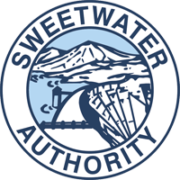OPINION: Recharging Groundwater Reserves, Not Building New Reservoirs, Is Key To California’s Water Future
To the editor: Your editorial, “California is dammed enough already,” raises some important points about improving our water future. The state faces a chronic problem that will only get worse with climate change: depleted groundwater supplies. Groundwater is the lifeline communities and farmers turn to in drought. The good news is there’s an untapped solution under our feet called groundwater recharge, which is much cheaper than building new surface reservoirs, has few environmental hurdles and can be implemented relatively quickly. There’s also three times more water storage capacity underground than in all of California’s surface reservoirs combined.

 Sweetwater Authority Logo 2019
Sweetwater Authority Logo 2019
